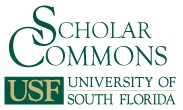Keywords
numeracy, quantitative literacy, quantitative reasoning, statistical literacy, statistical reasoning, mathematical literacy, mathematical reasoning, literacies; community of practice.
Abstract
This article aims to bring together various threads in the eclectic literature that make up the scholarship around the theme of Quantitative Literacy. In investigating the meanings of terms like "quantitative literacy," "quantitative reasoning," and "numeracy," we seek common ground, common themes, common goals and aspirations of a community of practitioners. A decade ago, these terms were relatively new in the public sphere; today policy makers and accrediting agencies are routinely inserting them into general education conversations. Having good, representative, and perhaps even compact and easily digestible definitions of these terms might come in handy in public relations contexts as well as in other situations where practitioners need to measure and evaluate their own success or communicate their goals and practice to others. Finding such definitions is, as expected, a difficult task. We offer through our analysis a clarifying framework for practitioners looking to sharpen their definitions and for others who are not keen on finalizing definitions. More specifically, we argue that there is indeed a common thread among all the terms involved, that of a competence in interacting with myriad mathematical and statistical representations of the real world, in the contexts of daily life, work situations, and the civic engagement. Furthermore we propose that the knowledge content captured by the individual terms can be placed on a continuum (statistics-data-arithmetic-mathematics-logic).
DOI
http://dx.doi.org/10.5038/1936-4660.9.1.2
Recommended Citation
Karaali, Gizem, Edwin H. Villafane Hernandez, and Jeremy A. Taylor. "What's in a Name? A Critical Review of Definitions of Quantitative Literacy, Numeracy, and Quantitative Reasoning." Numeracy 9, Iss. 1 (2016): Article 2. DOI: http://dx.doi.org/10.5038/1936-4660.9.1.2
Creative Commons License

This work is licensed under a Creative Commons Attribution-Noncommercial 4.0 License

